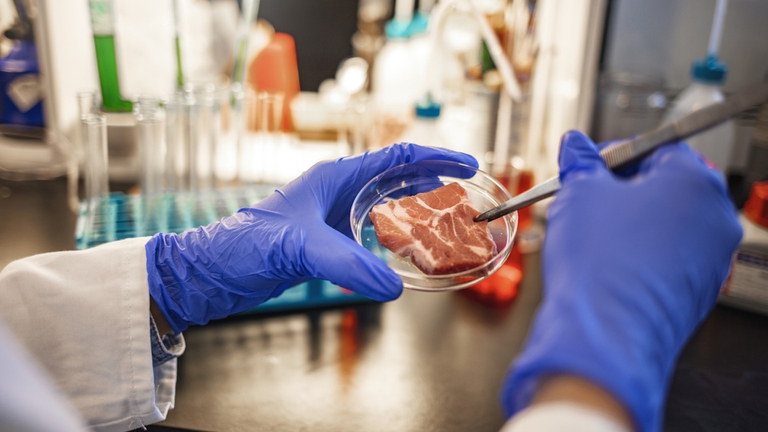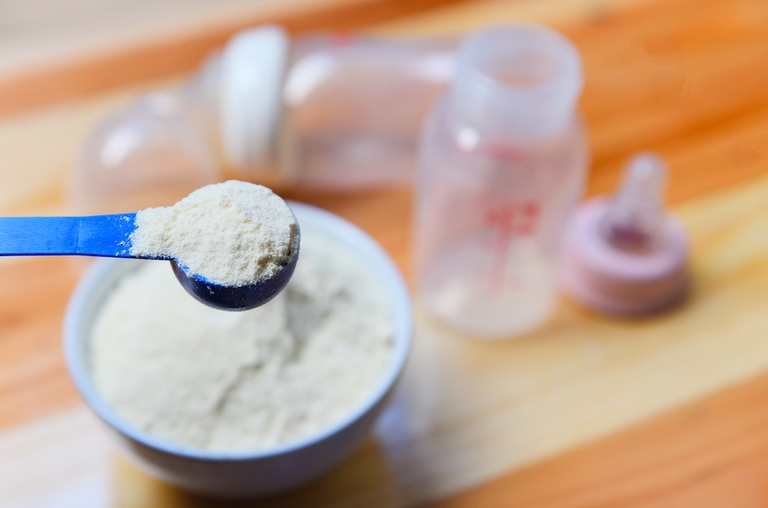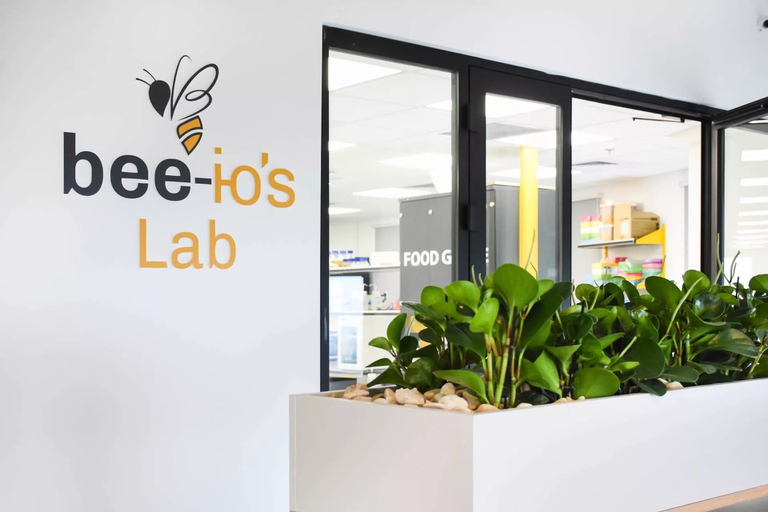https://www.lifegate.it/startup-israele-silicon-wadi
- |
- There are more and more Israeli startups active in the food-tech sector and concentrated in the area around Tel Aviv, renamed Silicon Wadi.
- Those developing alternative proteins in 2022 raised investments worth a sum second only to the United States.
- The research ranges from vegetable to cultivated meat, from synthetic milk to honey produced without bees up to new green packaging solutions.
They renamed it Silicon Wadi, because here, as in the Californian Silicon Valley, there is a very high concentration of startups technological and innovative.Let's talk about the area that gravitates around Tel Aviv, Israel, home to hundreds of software and telecommunications development companies, but also - and increasingly - startups active in theagri-tech and of food-tech.

The factors that have favored and continue to favor this proliferation are many:highly trained citizens, substantial private and public funding (Israel is the first nation in the world to invest in research and innovation with funds equal to 4.95 percent of gross domestic product) and close collaboration between farmers, the food industry, research and government.So Israeli agriculture and the food industry, always used to "producing more with less" in a country with limited natural resources, are looking for new solutions to meet emerging global food needs threatened by climate changes, pandemics and conflicts, through technological innovations that can make food systems more efficient and sustainable.
Israel ranks second in investments raised for food tech
Milk without cows, meat without animals, eggs without chickens, honey without bees, fruit juices without fruit sugars:there are approximately 500 Israeli startups involved in creating the food of the future 200;we range from the development of alternative proteins to new foods, from foods based on health and well-being to sustainable packaging.Not to mention the 300 agri-tech startup.

According to a report published by Good food institute Israel, a non-profit organization that seeks to promote research and innovation in food technology, in 2022 Israel ranked at second place after the United States in investments in alternative proteins, with local startups active in the sector having raised approx 454 million dollars in capital, 15 percent of the global capital raised for the sector worldwide.
From meat to milk to eggs, Israeli alternative, fermented or cultured protein startups
He obtained the largest investment, 135 million dollars Redefine Meat that develops plant-based products completely similar to traditional meat products, including blood, using 3D printers.Not only veggie burgers, but also steaks (here's the news) produced in Israel and the Netherlands which are offered by Israeli and European restaurants and which have also landed in some Italian restaurants in recent days, including Joe Bastianich's Smashburger.
Beyond plant-based meat, there is also the cultured meat, i.e. the one produced in bioreactors starting from animal cells, which, for example, the Israeli company works on Aleph Farms which has among its investors personalities such as Leonardo DiCaprio, but also multinationals of traditional meat as Cargill and the same Israeli government which, last year, granted 18 million dollars for what it called the “largest consortium in the world” for the development of cultured meat, composed of ten universities and research institutes and fourteen companies including , in fact, Aleph Farms, but also Supermeat, a cultured meat startup that, through test-kitchen “The Chicken”, offers the opportunity, to those who wish, to observe how meat is produced in the laboratory and to taste some burgers cultivated chicken.
The second largest investment raised by an Israeli food tech startup, $124 million, concerns Remilk, which it produces milk and animal-free dairy products.Milk proteins are produced through the fermentation of genetically modified yeasts and are described as “indistinguishable in taste and function from cow's milk proteins, but free of lactose, cholesterol and growth hormones”.Remilk has just received approval from the Israeli government for the marketing of its products in the country, after the previous green light from Singapore and the Food and drug administration of the United States.
But there's more to milk produced without cows. Wilk, another Israeli startup, is working on the development of cultured milk, or milk produced from mammary epithelial cells.And not only animal ones, but also human ones, with the aim of reproducing in the laboratory also the breast milk.The startup recently signed a strategic investment agreement with the French dairy giant Danone to develop animal-free formula milk.

In the Israeli food tech scene there is no shortage of startups developing substitutes for egg with the same properties and functionality of an egg as Egg'n'up And Eggmented Reality and those engaged in the development of cultivated fish, from Mermade to Sea2Cell to E-fishient protein.
Honey without bees and sugar-free fruit juices are also produced in Israel
Not just alternative proteins:in the food industry of the future there is also room for much more, provided it presents itself as more sustainable or healthier.The startup Bee-me has created an innovative technology for producing honey without the exploitation of bees, “all year round and at affordable prices”.Every week Bee-io is able to produce three tons of honey, replacing 4,500 hives.

Still, Phytolon gets natural food colourings via brewer's yeast fermentation process, Carobway produces 15 different products using seeds and pulp carob, a crop resilient to climate change, Mush Foods cultivate edible mushroom mycelium to create animal-free proteins for the food industry.And if so far, about the sugars, the industry's options were to lower the content or eliminate added sugars, Better Juice it went further:the israeli startup reduces simple sugars from products such as fruit juices, converting them into prebiotics without decreasing the content of vitamins, minerals and antioxidants.
Sustainable packaging and complete meals enclosed in a pod
And if it is true that a sustainable product cannot fail to have a packaging equally green, here are some of the startups active in Israel that deal with new materials: MadeRight transforms mycelium and organic waste into recyclable packaging; Sufresca has created an odorless and flavourless, thin and transparent spray coating to extend the shelf life of fruit and vegetables; Solotum has created a material capable of replacing the plastic which dissolves in water at room temperature.
Finally, we mention, Anina which transforms any organic material into edible sheets that would preserve the flavors, smells and nutrients of the food:the sheets are shaped to create pod which open in the hot water revealing a complete meal composed of cereals, legumes, spices and aromatic herbs.We don't know where the future will take us, but the food industry is certainly passing through Israel.
